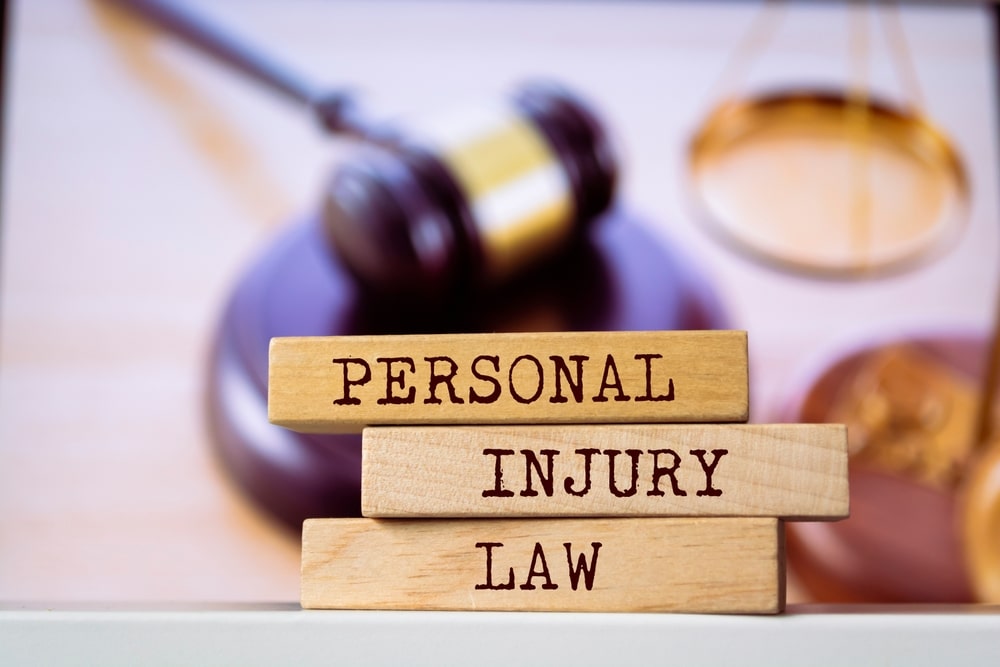January 15, 2024
What is the Difference Between Litigation and Personal Injury in Tennessee? Understanding Legal Processes
Understanding the distinction between litigation and personal injury is essential for anyone navigating the legal system. Broadly speaking, litigation is the process of taking a dispute to court and asking the judiciary to make a determination. It encompasses a wide array of conflicts that can arise in various facets of law, ranging from contract disputes to criminal proceedings. The term “litigation” is therefore an umbrella term that covers the procedural aspects of legal disputes before, during, and after a trial.
Personal injury law, on the other hand, is a specialized area of civil law where individuals seek compensation for harm suffered due to another’s negligence or intentional acts. This branch specifically deals with cases where physical, emotional, or psychological harm has been inflicted upon a person. Personal injury claims can include incidents such as car accidents, medical malpractice, or workplace injuries, wherein the affected party can demand monetary compensation for their losses.
Therefore, while all personal injury cases involve litigation, not all litigation involves personal injury. Nashville personal injury attorney focuses on advocating for their client to receive compensation for their injuries, whereas litigation attorneys may handle a broader spectrum of legal disputes, including but not limited to personal injury. The two terms are intertwined yet distinctly cater to different legal needs and procedures.

Understanding Litigation in Tennessee
Litigation is the formal process of resolving disputes within the legal system, from initial filing through the potential trial and post-trial appeals. The entities involved, such as courts, plaintiffs, and defendants, adhere to strict procedures and strategies to enforce or defend a legal right.
The Litigation Process
The litigation process begins when the plaintiff files a complaint against a defendant, claiming that their rights were infringed upon and often seeking damages. The defendant then responds with an answer to these charges, possibly including counterclaims. Subsequent stages include the discovery process, where both parties gather and exchange relevant information and evidence. Deadlines are critically enforced at each step. If the case does not reach a settlement, it proceeds to trial, where a judge and sometimes a jury determine the outcome based on the presented evidence. Mediation and arbitration are forms of alternative dispute resolution that may be employed to avoid a full trial.
Roles in Litigation
Key participants in litigation include the judge, who presides over fairness and application of the law; the plaintiff, who brings the lawsuit; and the defendant, who defends against the allegations. Additionally, insurance companies may be involved in aspects of the litigation, especially in cases concerning negligence or personal injury.
Types of Litigation
Litigation is categorized by the nature of the dispute. Civil litigation encompasses private disputes between individuals or organizations, such as in cases of breach of contract or property disputes. Criminal litigation involves the government prosecuting an individual or entity for violating laws. Specialized litigation types include intellectual property cases or those seeking injunctions to prevent harm. Consequences can vary from compulsory actions to monetary compensation, including punitive damages. The final decision, known as a judgment, is rendered after the culmination of the trial in the form of a verdict.
Exploring Personal Injury
Personal injury law provides a legal framework for individuals who have been harmed physically or psychologically due to another party’s negligence or deliberate misconduct. Under tort law, injured parties may claim compensation to cover their losses.
Personal Injury Cases
Personal injury cases are legal disputes that arise when one person suffers harm from an accident or injury, and another individual or entity may be legally responsible. A wide range of situations can result in such cases, including car accidents, medical malpractice, slip and fall incidents, and incidents involving defective products. These cases often hinge on notions of negligence, where failure to exercise reasonable care has led to someone’s injury.
Compensation in Personal Injury
The primary aim of personal injury law is to provide monetary compensation to the injured individual for losses incurred. This can include reimbursement or coverage for:
- Medical bills: Costs associated with medical treatment.
- Lost wages: Earnings lost as a result of the injury.
- Pain and suffering: Physical and emotional distress caused by the injury.
Compensation can also be extended to cover emotional distress and, in cases of egregious wrongdoing, punitive damages may be awarded to deter future misconduct. State law can affect the types of compensation available in a personal injury claim.
The Role of Attorneys in Personal Injury
Attorneys specializing in personal injury law play a crucial role in representing the injured in their quest for justice and fair compensation. An experienced attorney will typically operate on a contingency fee basis, meaning their fee is a percentage of the awarded compensation and is only paid if they win the case. These legal professionals negotiate with insurance companies, file lawsuits, and represent their clients in court. They work to establish liability, document injuries and damages, and assert the rights of the injured party. Their expertise can be pivotal in cases involving complex terms such as res ipsa loquitur or strict liability.
Personal injury lawyers ensure proper adherence to legal procedures and maximize the chances of a favorable outcome, often securing financial relief that comprehensively addresses the accumulated losses and impacts of the injury.
Comparing Litigation and Personal Injury
In comparing litigation and personal injury, it’s essential to consider the specific procedural steps and the potential outcomes, such as settlements or judgments, that each process may entail. This comparison highlights the differences in approach between broader civil litigation and the focused field of personal injury law.
Procedural Differences
Civil litigation is a legal process that can encompass a range of disputes, including but not limited to personal injury claims. When a plaintiff initiates a lawsuit, it triggers a sequence of procedural steps: the filing of complaints and answers, discovery, negotiations, and possibly a trial. Both plaintiffs and defendants are typically represented by attorneys, who marshal evidence, argue motions, and devise strategies to advocate for their client’s position.
In contrast, a personal injury case is a type of tort law where the plaintiff has suffered harm due to the negligence or intentional actions of the defendant. This specialized branch of litigation often focuses on recovery of damages for the injured party. Although it follows the general litigation process, personal injury cases are more likely to involve discussions regarding medical evidence, pain and suffering, and discussions around compensation for the specific injuries incurred.

Case Outcomes and Settlement
The outcomes of litigation and personal injury cases can vary widely. In both scenarios, the parties may reach a settlement through negotiation, which is an agreement to resolve the dispute without a trial. Settlements often occur when the parties want to maintain control over the outcome, reduce costs, and avoid the uncertainty of a jury verdict.
- Settlement Features:
- Control: Parties retain control over the outcome.
- Cost: Potentially lower legal fees and expenses.
- Confidentiality: Settlement agreements can be kept private.
- Speed: Quicker resolution compared to a full trial.
Should a case go to trial, it will be heard and decided by a judge or jury. The trial process can provide a sense of justice for those seeking a day in court, particularly in cases where the evidence of negligence is clear and the need for compensation is great. However, trials are unpredictable, often more time-consuming, and can incur greater legal costs for both parties.
Regardless of the approach, whether through negotiation or trial, the goal in both litigation and personal injury cases is to adequately compensate for losses or damages and to facilitate recovery for the harmed party. Attorneys play a key role in navigating the complexities of either process to secure a just outcome for their clients.




